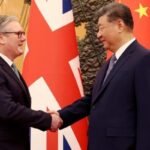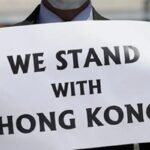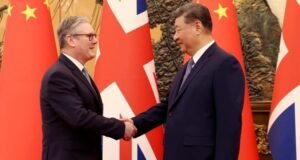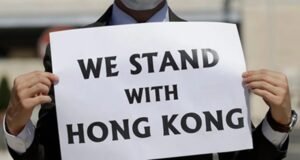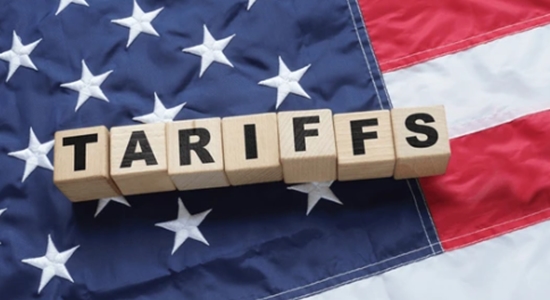
President Trump has made unforced errors. So far, I agree. This proposition is general enough and evident enough that it virtually compels assent. All human beings have committed unforced errors. We blunder sometimes. We’re fallible.
Paul Mueller and David Hebert make somewhat narrower claims, regarding “The Unforced Error of Trump’s Trade Deals” (National Review, May 16, 2025). With respect to the United States and China they say:
The tariffs between the two countries had effectively created an embargo…. This led to job losses at U.S. ports, in warehouses, and in the trucking industry. Maintaining these prohibitively high tariffs would have led to problems in both countries [but greater problems for China, the authors fail to note].
This new deal successfully averts this, albeit only temporarily. Insofar as tariffs and trade restrictions have come down since the beginning of the month, this is clearly good. But as with the U.K. deal, we need to contextualize this victory. Trade policies between the U.S. and China at the beginning of 2025 were certainly a far cry from “good.” In 2022, the U.S. Trade Representative issued a report breaking down foreign trade barriers on a country-by-country basis. That its entry on China comes in at a staggering 40 pages, longer than any other country’s entry by a considerable margin, is telling.
However, those terms were likely better in many ways than what we have today. China’s non-tariff barriers to trade imposed on the U.S. remain in place, and U.S. tariff rates imposed on China remain higher than they were at the beginning of 2025…. Perhaps the last month of tariff brinkmanship was enough to show that both countries face significant consequences from fully severing trade relationships….
We all know that if you find yourself in a hole, you should stop digging. The Trump administration has stopped digging. Now they should put aside the shovel, climb out of the hole, and embrace the freer trade they are attempting to strong-arm from the rest of the world.
The authors are correct in observing the complexities of trade and China’s abundant barriers to trade and in objecting to any avoidable inconsistencies in Trump’s tariff policies. But their article goes off the rails by seeming to suggest that the primary way of resolving the trade imbroglio with China is embracing freer trade with China, one of the world’s country-sized slave pens.
Bitter for a time
Among the readers commenting on Mueller and Hebert’s article at the National Review website is iaf123, who says that he cannot “cheer the return of business as usual with the CCP” and who suggests that Americans are “insane to continue to funnel billions to a totalitarian polity that is bent on our displacement and humiliation, for the sake of disposable toys and gadgets and cheap clothing. The Chinese themselves talk of eating bitter for a time, in the service of a worthy goal. They were willing to do that to [force us to stand down]: and now we have obliged them. Surely almost any amount of ‘bitterness’…is justified when the alternative is continuing to arm perhaps the greatest and most implacable competitor in our history.”
I take it that “competitor” is here an ill-considered euphemism for “enemy.”
Where is any of this concern about America’s decades-long equipping and enabling of the totalitarian Chinese party-state in the article by Messieurs Mueller and Hebert? Nowhere. Time for National Review to hire iaf123.
Also see:
StoptheCCP.org: “Want Free Trade? Free Oppressed Nations”
